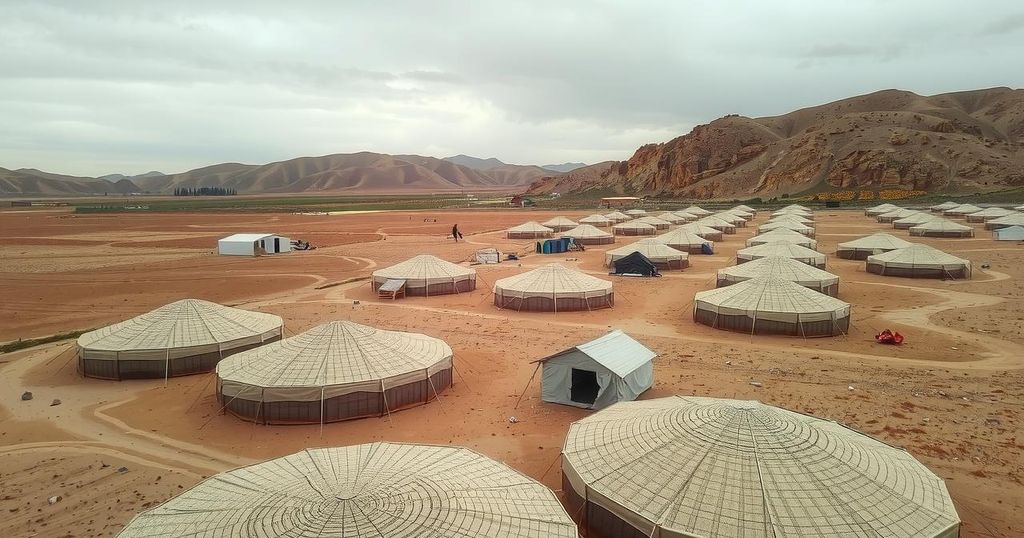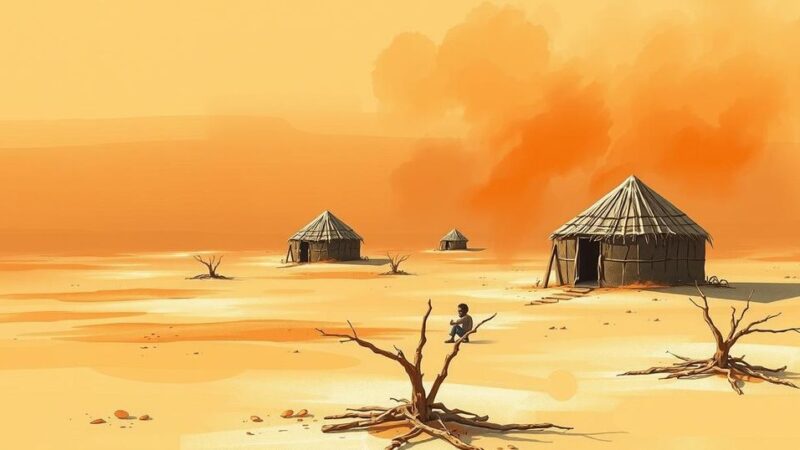The U.S. foreign aid freeze is jeopardizing essential health care for Sudanese refugees in Chad, primarily affecting women and children. The UN reports a significant impact on vital programs, with nearly 700,000 refugees entering Chad amidst the Sudanese conflict. Organizations like UNFPA struggle to maintain services amidst funding cuts, warning of dire maternal health implications. Confusion surrounds the humanitarian waiver process, further complicating efforts to restore critical aid.
The situation of Sudanese refugees in Chad faces dire consequences due to the U.S. foreign aid freeze, which threatens essential health care services provided by the United Nations. The freeze impacts organizations reliant on U.S. funding, causing critical programs to halt, affecting vulnerable populations, especially women and children, who constitute ninety percent of the refugee demographic according to the U.N.
The U.S. Agency for International Development (USAID) has undergone significant cuts, yielding a drastic reduction of its programs. Secretary of State Marco Rubio stated that an 83% reduction has been implemented, emphasizing the administration’s intent to streamline the federal government’s size. Such measures have left humanitarian organizations struggling to meet the urgent needs of displaced individuals.
Since the outbreak of conflict in Sudan in April 2023, nearly 700,000 refugees have crossed into Chad, marking one of the largest inflows in the country’s history. Anna Jefferys, a UN communications specialist, remarked on the abrupt cessation of humanitarian operations, indicating the severe implications of the aid cut for healthcare facilities, particularly maternity wards.
Survivors like Daralssalam Issa recount their harrowing experiences, having left their stable lives for the uncertainties of refugee camps. The U.N. Population Fund (UNFPA) plays a critical role in Chad, deploying midwives and mobile clinics to address the healthcare needs of women in refugee camps, where traditional services are inadequate or nonexistent.
With a staggering 60% of the Sudanese population unable to access health services due to ongoing violence, the UNFPA’s funding, primarily derived from the State Department, is crucial. This funding supports midwives who deliver essential care to pregnant refugees, despite the U.N. reporting Chad as having the second-highest maternal mortality rate globally.
Local midwives, such as Soliri Adete, express their commitment to aiding women in distress, a mission increasingly jeopardized by funding shortfalls. The lack of resources means that vital services may cease, prompting alarm over increased maternal fatalities that could arise from the impending aid freeze. The urgency for funding cannot be overstated, as UNFPA representatives warn that failure to secure resources could result in devastating public health consequences.
Despite the announcement of humanitarian waivers by U.S. officials aimed at mitigating the aid freeze’s impact, the application process has been fraught with confusion, hindering timely access to necessary funds. Aid organizations remain hopeful for a resolution but continue to face challenges in navigating the bureaucratic landscape.
The U.S. foreign aid freeze poses a significant threat to the healthcare services available to Sudanese refugees in Chad. With vital programs at risk of shutdown, and particularly detrimental effects on the maternal and reproductive health services that the U.N. provides, urgent action is required to secure alternative funding. The lives of countless women and children hang in the balance as the aid landscape grows increasingly chaotic and uncertain.
Original Source: abcnews.go.com






